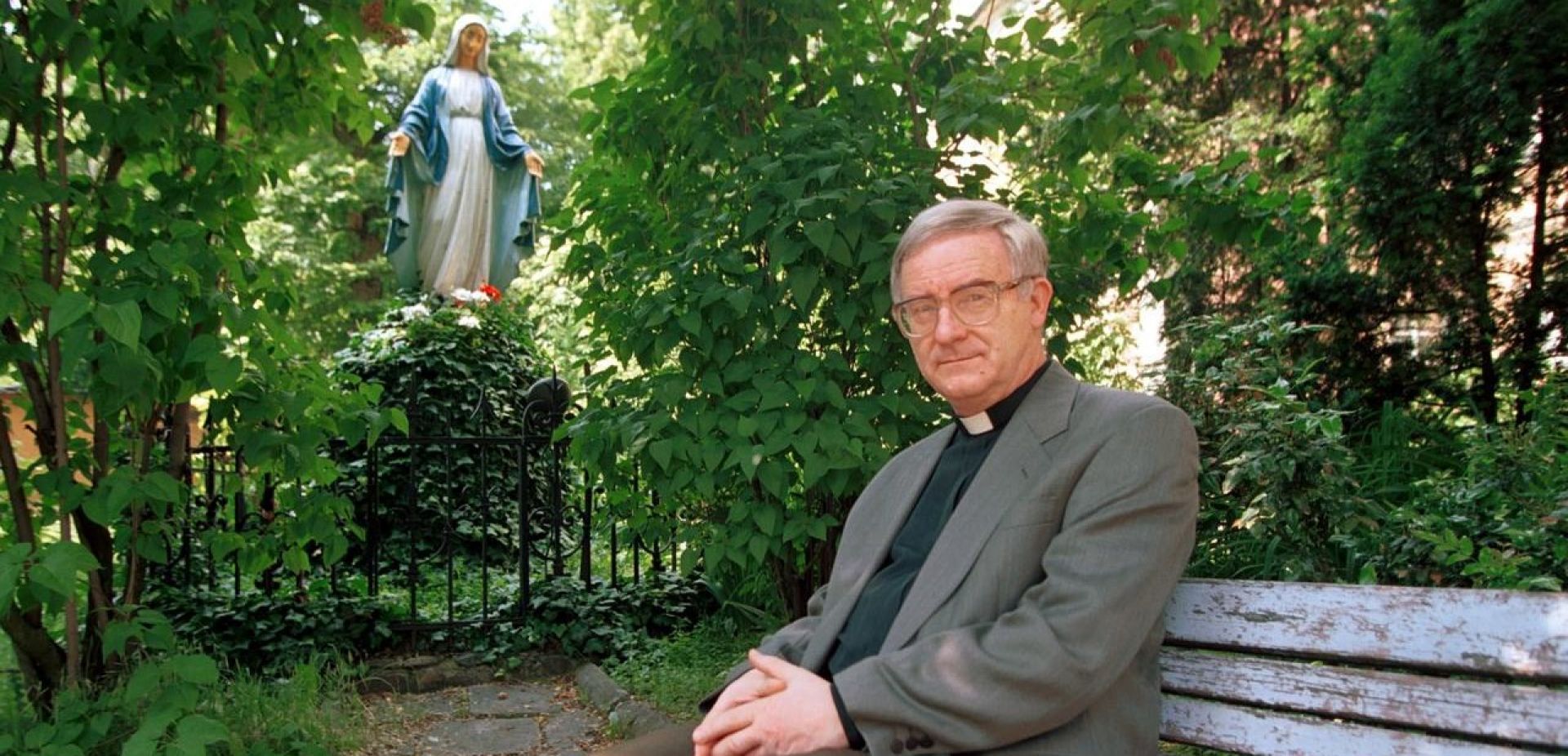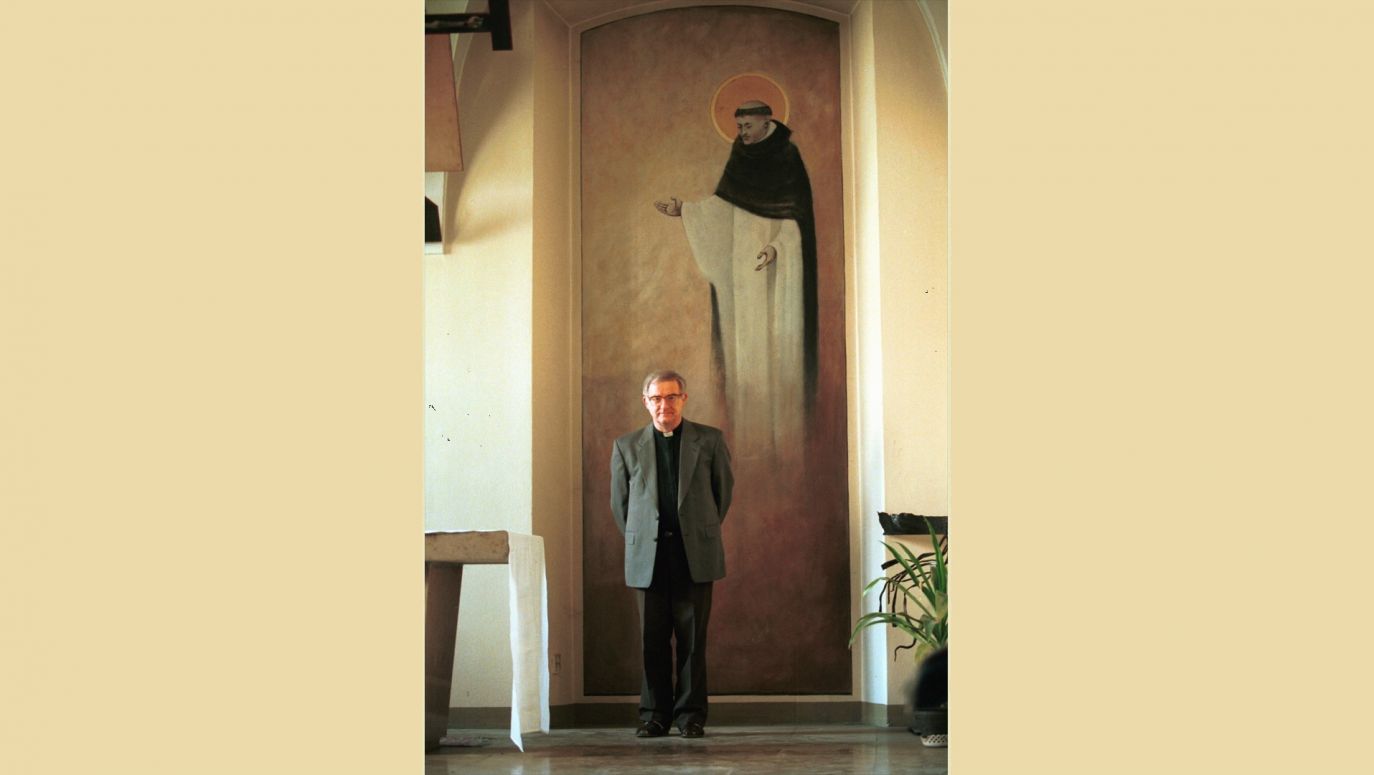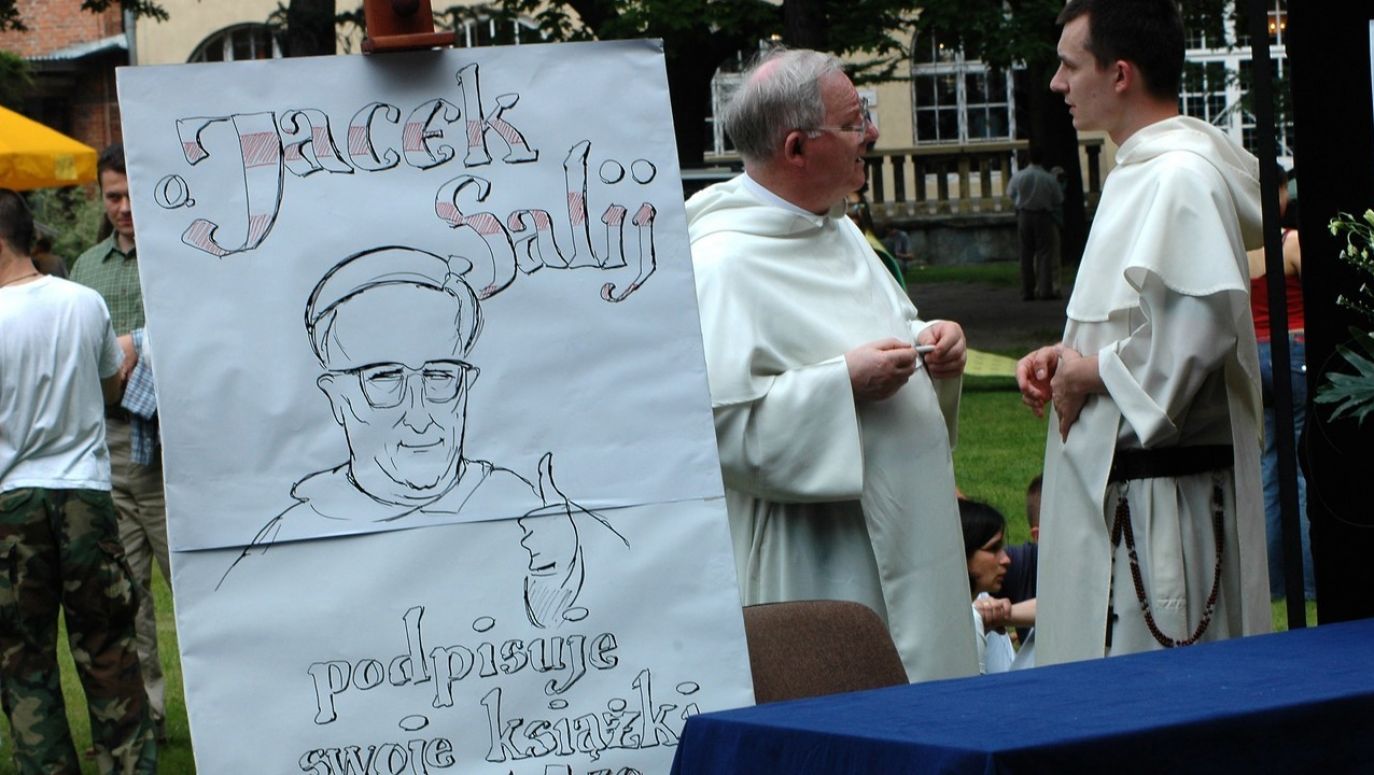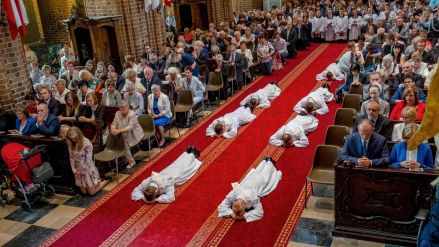Father Jacek Salij is turning 80, and this is definitely a reason to remember his figure and his fantastic activity not only in the Warsaw monastery on Freta Street, but also in many other places and areas. For several decades he ran a column in a Dominican monthly magazine, 'Seeking the Way', in which he answered countless questions from readers about faith, religion, the Church, relationships with the Lord God and with other people. But how did he answer! He wrote in a fascinatingly 'unprofessional' language, explained the most difficult matters without a trace of scientific pomp or excess of erudite display, and referred to examples from his life. Readers later bought books of these columns on the spot, published two or three times over, and lent them to each other.
"He is a rock", says journalist and writer Alina Petrowa-Wasilewicz, who met Father Salij long ago through the poet Anna Kamieńskaya, a friend of her parents. "This is a man who will answer doubts, give intellectual 'soil', because faith feeds on reason, he will not leave without an answer".
"Father Jacek was an important participant in the dialogue between Catholic circles and the participants in the March '68 protests, centred around Jacek Kuroń and Adam Michnik," adds Professor Jacek Czaputowicz, former Minister of Foreign Affairs. "For the circles of the early oppositionists, to which I belonged at the time, the cloisters and catechetical rooms in the Dominican monastery in Freta Street were always open, just to recall the meeting of the Cultural Section of the Warsaw Catholic Intelligentsia Club (KIK) with Antoni Macierewicz, a member of the Workers' Defence Committee (KOR), organised at a time when the lectures of the Society of Academic Courses were paralysed by the militia of the Socialist Union of Polish Students.
 SIGN UP TO OUR PAGE
SIGN UP TO OUR PAGE

And yet this jubilarian is a professor of theology, an eminent scholar, the promoter of numerous doctoral theses, the author of dozens of books and thousands of articles. He was a member of various important scientific and social bodies, sometimes - in times justly gone - somewhat secret, in the last 30 years quite official. Above all, he was a shepherd of souls, and we should divide this word into two parts if anyone doubts his understanding: "shepherd - of souls" and look at Father Jacek's activities in this way. That he was - and is - a shepherd of souls who seek help.
"And everything is built on the foundation of his very deep spirituality, his deepest understanding of Christianity, his incredibly strong faith and based on a fantastic intellectual background," explains Alina Petrowa-Wasilewicz, author (with Jacek Borkowicz) of an long interview with Father Jacek entitled "Celebrating God".
Firstly: life
No one remembers it today, but in the late 1970s - that is, in the years of rampant 'free' abortion - for even the slightest public statement in defence of unborn life, any editorial board or other entity of social life faced instant trouble from the censors or other repressive authority. And it is under such circumstances that three priests with several lay people undertake just such an activity: a modest and quiet offer of help to girls and pregnant women hesitating to give birth. At the head is Father Jacek Salij, still young, but already scientifically established, with a habilitation degree and therefore a professorial career in prospect - although also with a solid portfolio of surveillance, since in 1975 he signed Letter 59 - an objection to the planned changes to the Constitution of the People's Republic of Poland, consisting of the introduction of the "leading role of the Communist Party" and a "perpetual alliance with the Soviet Union". Father Jacek, as I was told by the co-founders of the "Gaudium vitae" movement, the then very young Wanda and Andrzej Urmanski and Maria Wolframowa, a generation older, was always a support, you could always count on him, he never referred to other agents or "for later".

 SIGN UP TO OUR PAGE
SIGN UP TO OUR PAGE
 And yet this jubilarian is a professor of theology, an eminent scholar, the promoter of numerous doctoral theses, the author of dozens of books and thousands of articles. He was a member of various important scientific and social bodies, sometimes - in times justly gone - somewhat secret, in the last 30 years quite official. Above all, he was a shepherd of souls, and we should divide this word into two parts if anyone doubts his understanding: "shepherd - of souls" and look at Father Jacek's activities in this way. That he was - and is - a shepherd of souls who seek help.
And yet this jubilarian is a professor of theology, an eminent scholar, the promoter of numerous doctoral theses, the author of dozens of books and thousands of articles. He was a member of various important scientific and social bodies, sometimes - in times justly gone - somewhat secret, in the last 30 years quite official. Above all, he was a shepherd of souls, and we should divide this word into two parts if anyone doubts his understanding: "shepherd - of souls" and look at Father Jacek's activities in this way. That he was - and is - a shepherd of souls who seek help.







